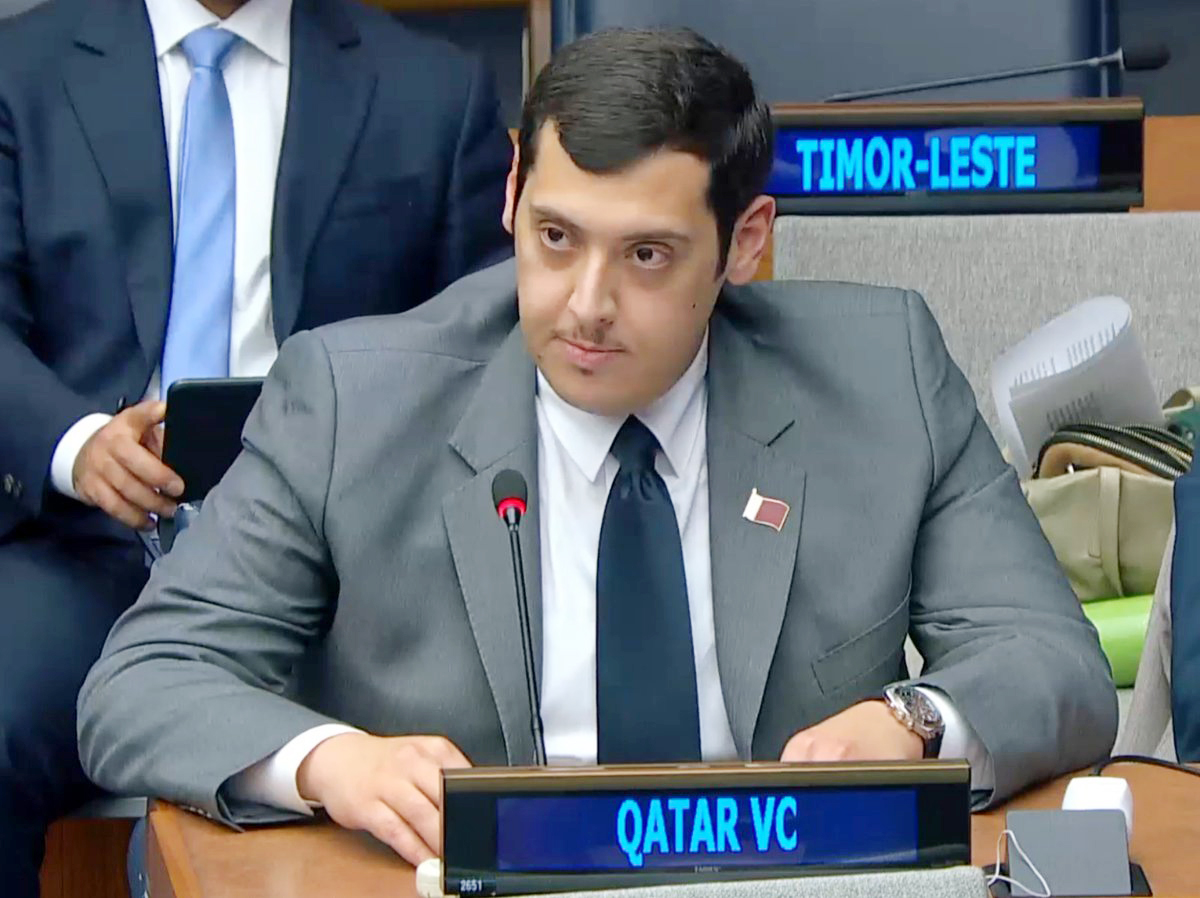Qatar’s emphasis on the importance of adhering to agreements and treaties related to the disarmament of nuclear weapons and weapons of mass destruction (WMDs) was highlighted by Second Secretary of the Permanent Mission of Qatar to the United Nations, Sheikh Abdulrahman bin Abdulaziz Al Thani. In his statement before the First Committee of the 79th session of the United Nations General Assembly, Al Thani expressed hope that all countries worldwide would join these agreements to contribute to international peace and security and protect future generations from the dangers of proliferation of such weapons.
Qatar is actively developing and updating national legislation related to weapons of mass destruction to align with its obligations under international agreements. The country also collaborates with the Organization for the Prohibition of Chemical Weapons (OPCW) to support the implementation of the Chemical Weapons Convention (CWC). In June 2024, Qatar made a financial contribution to the OPCW to enhance the role of artificial intelligence in the organization’s work and improve the efficiency of implementing the CWC.
Additionally, Al Thani highlighted Qatar’s efforts to raise awareness about the dangers of weapons of mass destruction by organizing workshops for university students. These workshops aim to inform students about the biological and chemical weapons conventions, treaties related to nuclear weapons, and Qatar’s commitment to implementing agreements related to WMDs. Qatar strongly believes in peaceful conflict resolution and dialogue as the most effective options for maintaining international peace and security.
The importance of promoting dialogue and cooperation in non-proliferation efforts was underscored by the mention of the UN Security Council Resolution 1540 of 2004. This resolution calls on all states to work together to confront the threats posed by the proliferation of nuclear, chemical, or biological weapons and their means of delivery. Al Thani emphasized that the proliferation of such weapons poses a serious threat to international peace and security, highlighting the need for unified efforts to prevent the possession and use of these deadly weapons under any circumstances.
The devastating effects of weapons of mass destruction on humanity necessitate the international community to collaborate in preventing their proliferation. It is crucial to ensure that the use of these weapons is strictly prohibited and that all legal obligations outlined in relevant international treaties are adhered to. Qatar believes that global cooperation and adherence to disarmament agreements are essential in safeguarding the future of humanity and ecosystems from the dangers posed by WMDs.
In conclusion, Qatar’s stance on disarmament of nuclear weapons and weapons of mass destruction emphasizes the importance of international cooperation, adherence to agreements, and raising awareness about the dangers of such weapons. By supporting organizations like OPCW and promoting peaceful conflict resolution, Qatar plays a proactive role in contributing to global peace and security. The collaborative efforts of all countries are essential in preventing the proliferation and use of weapons of mass destruction, ensuring a safer world for future generations.










